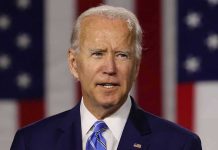
Libya’s political landscape faces fresh turmoil as the central bank governor is abruptly dismissed, potentially deepening divisions in the war-torn nation.
At a Glance
- Libya’s presidential council in Tripoli fired Central Bank Governor Sadiq al-Kabir
- Mohamed Abdul Salam al-Shukri appointed as the new governor
- The move has been condemned by Libya’s east-based parliament and the Supreme Council of State
- The dismissal highlights deep-seated political divisions and challenges to national unity
Sudden Dismissal Sparks Controversy
In a move that has sent shockwaves through Libya’s political establishment, the presidential council in Tripoli has abruptly dismissed Sadiq al-Kabir, the country’s powerful central bank governor. Al-Kabir, who had held the position since October 2011 following the NATO-backed uprising that toppled Moammar Gadhafi, was removed late Sunday by decree.
The decision to oust al-Kabir, who faced criticism for his handling of Libya’s oil money, has been met with immediate backlash. Both the east-based parliament and the Supreme Council of State in Tripoli have condemned the dismissal as illegitimate, underscoring the deep political fissures that continue to plague the nation.
Libya’s presidential council has dismissed the powerful governor of the country’s Central Bank in a surprising and abrupt move.https://t.co/icSDfIJeaH
— News Central TV (@NewsCentralTV) August 19, 2024
Political Divisions Deepen
The firing of al-Kabir has laid bare the ongoing struggle for power in Libya, which remains divided between a U.N.-supported government in Tripoli and rival authorities in the east. This political schism has extended to the Central Bank itself, which split in 2014 along political lines, with headquarters in Tripoli and an eastern branch in Benghazi allied with Khalifa Hifter.
The presidential council’s unilateral action in removing al-Kabir has raised questions about the legitimacy of the process. According to interim regulations from U.N.-backed talks, both the east-based parliament and the Supreme Council of State should have a say in the appointment of the Central Bank governor, a procedure that appears to have been bypassed in this instance.
Economic Implications
The Central Bank of Libya plays a crucial role in managing the country’s vast oil wealth and foreign reserves. The sudden change in leadership at this critical institution could have far-reaching implications for Libya’s economic stability and recovery efforts. Mohamed Abdul Salam al-Shukri, an economist and former deputy governor, has been appointed as the new governor, but the transition’s impact remains uncertain.
The international community is closely monitoring the situation, given Libya’s strategic importance and its substantial oil reserves. The central bank’s role in managing these resources is paramount for the country’s economic health and potential recovery. However, the current political turmoil threatens to further complicate efforts towards establishing a unified national framework and achieving financial stability.
Looking Ahead
As the situation remains fluid, with no immediate response from al-Kabir, the coming days will be crucial in determining the trajectory of Libya’s political and economic landscape. The dismissal of the central bank governor is likely to exacerbate existing tensions between rival factions and may present additional obstacles to ongoing efforts at national reconciliation and unification.
The international community and Libyan stakeholders alike will be watching closely to see how this latest development unfolds and what it means for the future of governance and economic stability in this strategically important North African nation.
Sources
- Libya Replaces Central Bank Governor as National Divisions Deepen
- Libya’s powerful central bank governor sacked
- Libya’s powerful central bank governor is fired as country’s deep divisions persist
- Libya’s powerful central bank governor is fired as country’s deep divisions persist
- Libya’s Central Bank Governor Ousted Amid Political Turmoil














